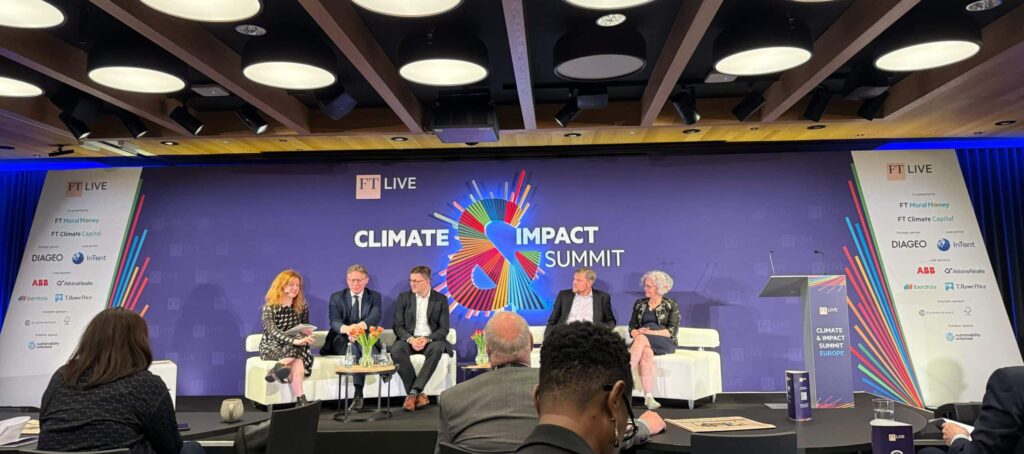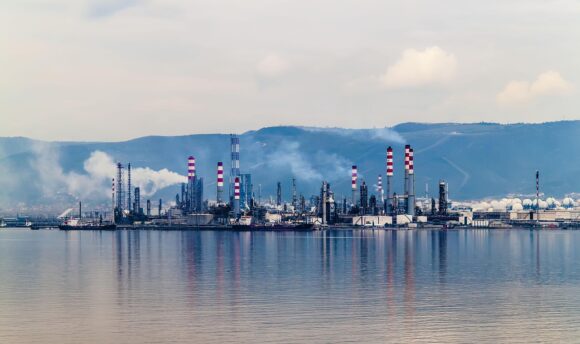Insurers are not just takers of risk, they’re makers of risk. That’s the message I left the audience at a Financial Times industry panel event last week, joined by insurance leaders from Howden, Munich Re, and Risilience.

The panel sought to understand the impacts of the so-called insurability crisis, that is the withdrawal of major insurers from covering whole regions most prone to climate impacts like flooding. This is already happening to home insurance in large chunks of the U.S. and there’s a risk it will spread here to the UK and Europe. At a time when people’s homes and livelihoods are being destroyed by climate change, they’re also finding themselves with more expensive insurance or none at all, which is being met with political backlash.
Climate Change is a Systemic Financial Threat
Insurance is meant to provide security for people, but right now insurers are pursuing short-term solutions to this crisis. They’re pushing for adaptation, no-housing zones, and changing the price of insurance every year—putting the burden on people rather than providing security. When insurers pull coverage on vulnerable coastlines, for example, leaving homeowners and businesses without insurance, people cannot get mortgages and property values plummet.
When insurers hike premiums, it’s customers—everyday people like you and me—who end up paying the price when the fair share of responsibility should be on producers of fossil fuels. The elephant in the room is that rising emissions caused by the combustion of fossil fossils are leading to more and more extreme weather. A new paper attributes trillions of dollars in damages to just 111 fossil fuel producers. My fellow panellist Scott Kelly from Risilience asked whether these companies should be footing the bill for climate damages.
Insurers Don’t Just Take Risks, They Make Them Too
As underwriters and investors in fossil fuel companies, insurance companies have the power to incentivise and change their behaviour. Insurers are getting out of coal, but can also stop facilitating other activities, like new oil and gas, that will destroy the economic system through either physical impacts or market collapse. The best way for insurers to cope with climate risk is to stop being passive bystanders and instead to proactively advocate for fast decarbonisation, using their sway with governments to de-risk clean energy production.
Unless insurers step up with serious solutions to address the root causes of the insurability crisis, they’re going to lose control of the conversation and face a wave of regulatory intervention designed to protect economies, not their margins. Regulators should mandate robust scenario analysis to account for the full complexity of climate-related events, including tipping points. They should also oversee insurers’ management of climate risks, including how fossil fuel underwriting and investment exacerbate those risks, to ensure their stability and ability to provide coverage.



